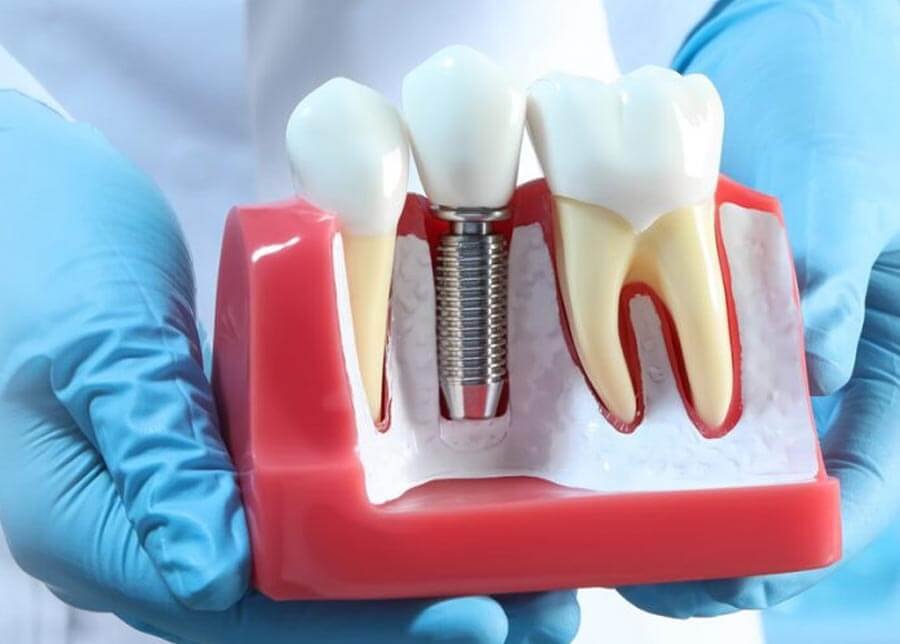A dental implant is a formation created to replace a lost tooth or teeth permanently. The implant is attached to the jawbone to serve as a false tooth root, then a prosthetic tooth or crown is attached on top. If you’re considering replacing your missing teeth, discover more about Pacific Dental & Implant Solutions and get proper guidance.
Dental implants are almost like actual teeth and are the perfect replacement for lost teeth. They can replace a tooth or support a bridge or dentures. Besides replacing lost teeth, the longevity of dental implants is another excellent benefit.
How Long Do Dental Implants Last?
Dental implants are supposed to be permanent because they are fixed to the jawbone to bond with surrounding bone tissue in a process known as osseointegration. Ultimately, the implant merges with the bone and tissue to position the implant in place.
The implant acts as an artificial tooth root, launching a solid foundation for a prosthetic tooth. Dental implants are permanent, but the crown wears out over time due to chewing, brushing, and flossing, needing replacement after 15 to 20 years. The crown is the top part of the dental implant; it resembles a natural tooth but is made from durable, artificial materials like ceramic or porcelain.
The artificial root is made from titanium, a rigid material that can last forever. Therefore the root does not need replacing. Proper hygiene is needed to keep the entire dental implant healthy. The location of dental implants in the mouth also determines their longevity. Like regular teeth, the implants in the rear are used for chewing, meaning they wear out faster than those at the front.
Types of Dental Implants
Dental implants land in two categories:
Endosteal Implants
These are the most popular dental implants, and they resemble little screws made from titanium or ceramic. The implants are inserted directly into the jawbone in two steps:
In the first visit, the patient is injected with anesthesia to numb them and prevent pain. The dentist then makes an incision into the gum, drills the jawbone to make space for the implant, and gives the jawbone and gums time to heal.
In the second visit, the dentist attaches a crown to the implant using a metallic post known as an abutment. Sometimes, the dentist can perform further procedures before placing an endosteal implant to create a more sturdy foundation in the jawbone.
Here are examples of such procedures:
- Bone grafts
- Sinus lift
- Ridge Expansion
Subperiosteal Implants
They are placed on the gum above the jawbone and consist of a metal structure extending slightly from the gums. They are recommended for:
- People whose jawbone isn’t healthy enough to fit an endosteal implant.
- Those who don’t wish to undergo a further procedure like bone graft before implant placement.
Like with endosteal implants, the patient is administered anesthesia before placing subperiosteal implants; it is a multistep procedure. The initial step is to take an impression of the jawbone to ensure the implant fits perfectly. The dentist makes an incision to expose the gum, and a metal frame is placed above the jawbone.
Once it heals, the dentist places the implant. In a follow-up visit, crowns are placed on the metal frame, which is the extension protruding from the gums.
What You Can Do to Ensure Dental Implants Last Longer
Longevity is one benefit of dental implants, although the crown still wears out due to frequent use. Here are some basic practices to maintain your implants.
Brush and Floss Often
Proper dental hygiene is essential on regular teeth and dental implants, as the crown wears out with time. Hence you should ensure good dental habits like brushing after each meal or at least twice a day. Your implants may not be prone to decay, but taking good care of the remaining natural teeth is essential.
Visit Your Dentist Every 6 Months
Routine dental check-ups help the implants last longer. Clean teeth keep the gums where the implant is fixed healthy. Frequent dental visits help to identify potential problems like gum disease, which can affect the implants. TImely visits are also important with restorative fillings.
Avoid or Stop Smoking
Smoking is harmful to your health, and it’s even worse with dental implants. It limits blood flow in the gum vessels, hindering healing, and the implant may take long to solidify.
Live a Healthy Lifestyle
A healthy life equals healthy bones, which are crucial in ensuring solid support for implants. Weak bones do not provide solid support for the implants and the remaining teeth.
What are the Signs of Failing Implants?
Frequent dental visits will reveal any issues with your implants. But how do you know the implant is failing? Here are the signs:
- Movement of an implant.
- Pain when biting or chewing.
- Redness and swelling of the gum
- Bleeding
- Pus
- Receding gums
















